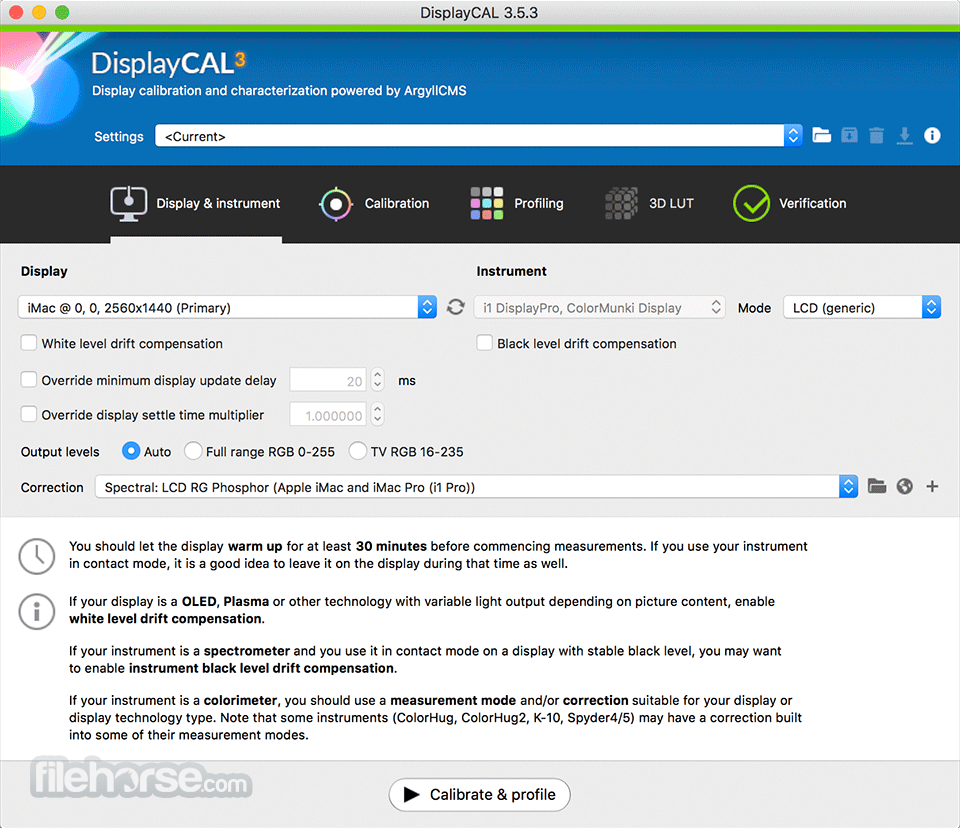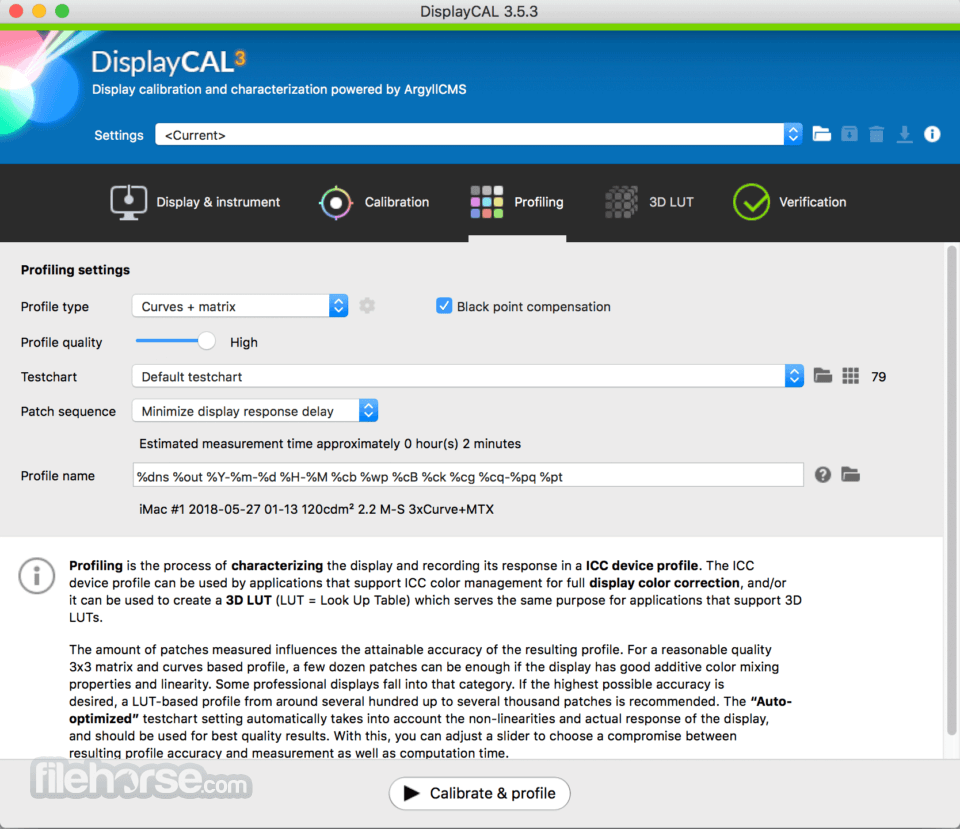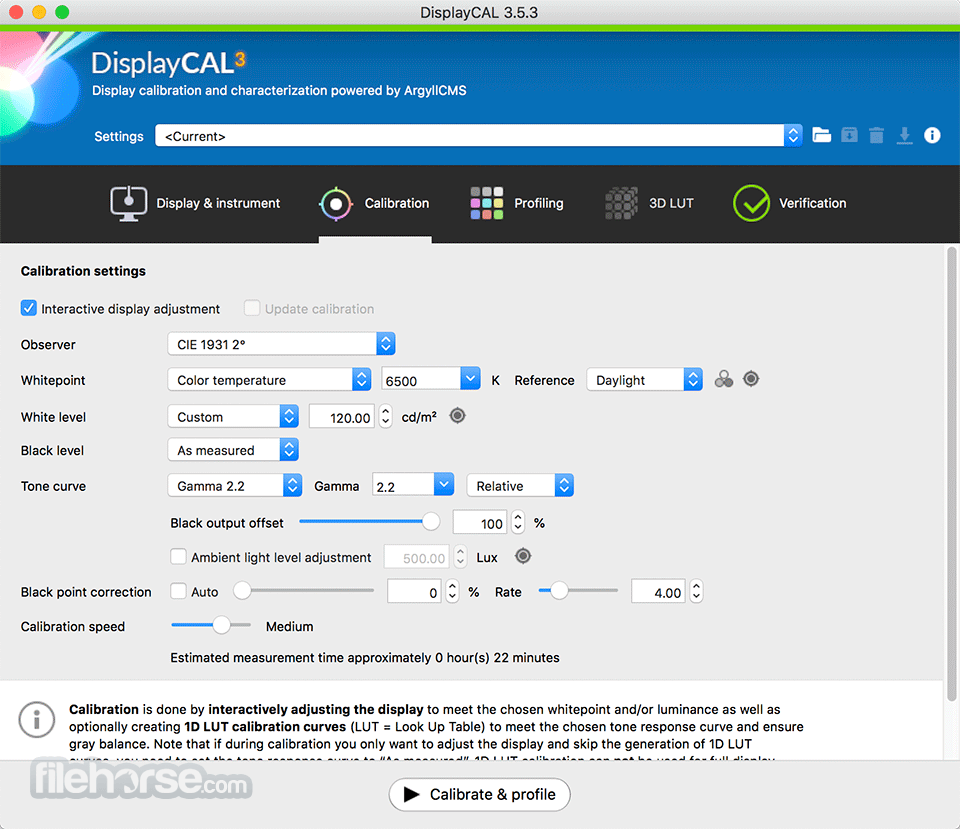-
Latest Version
-
Operating System
Mac OS X 10.6 or later
-
User Rating
Click to vote -
Author / Product
-
Filename
DisplayCAL-3.8.8.0.pkg
-
MD5 Checksum
a78f2a54ec42905fa10534543d96a5ed
Sometimes latest versions of the software can cause issues when installed on older devices or devices running an older version of the operating system. Software makers usually fix these issues but it can take them some time. What you can do in the meantime is to download and install an older version of DisplayCAL 3.8.8.0.
For those interested in downloading the most recent release of DisplayCAL for Mac or reading our review, simply click here.
All old versions distributed on our website are completely virus-free and available for download at no cost.
We would love to hear from you
If you have any questions or ideas that you want to share with us - head over to our Contact page and let us know. We value your feedback!
What's new in this version:
Changed:
- Enhancement Detect and warn about malformed colorimeter corrections (e.g. from non-official sources). Move them to the trash automatically if they were previously (manually) installed
- Enhancement Always enumerate instruments on application startup if more than one instrument was detected the last time the application was used
(cross-platform consistency)
- Enhancement When prompting for instrument calibration, display the just now detected instrument name instead of the previously enumerated name (the latter might be stale if you forgot to refresh after changing connected instruments)
- Enhancement Use a slightly improved smoothing method when creating high resolution PCS to device tables
- Enhancement Increase automatic PCS to device table resolution for L*a*b* LUT profiles to 45x45x45 if using smoothing
- Enhancement UI Only auto-close profile/3D LUT installation dialog after a successful installation
- Enhancement Don't auto-close madTPG after 3D LUT installation
- Enhancement macOS: Warn if a black luminance calibration target is set
- Enhancement Profile loader (Windows): Use a minimally faster method to check for other running applications
Fixed:
- Minor madVR 3D LUT generation: Always write D65 white to 3D LUT input primaries metadata so madVR does not attempt to correct whitepoint differences on its own when using a custom whitepoint (the 3D LUT itself will map the custom whitepoint correctly)
- Minor madVR 3D LUT installation: Don't attempt to install 3D LUTs with unsupported input primaries metadata (i.e. not Rec. 709, SMPTE C, EBU/PAL, Rec. 2020 or DCI P3) as madVR will overwrite the metadata depending on the 3D LUT install slot. Such 3D LUTs should only be assigned manually in madVR instead
- Trivial UI When loading settings, always enable the 3D LUT tab if the display is virtual (consistent with display selection behavior)
- Trivial Also apply black point correction when creating a matrix profile without black point compensation (consistency)
- Trivial Do not create swapped matrix fallback tags for XYZ LUT profiles when using the alternate forward profiler and the used ArgyllCMS version is >= 2.1 (be consistent with ArgyllCMS)
- Trivial madVR 3D LUT generation: Accept negative values for input primaries metadata
- Trivial madVR 3D LUT installation (Linux, macOS): Send the 3D LUT in chunks and increase the timeout to prevent the installation failing over a slow network (e.g. WiFi)
- Cosmetic UI Profile loader (Windows): Prevent a stale tray icon remaining (until mouse over) in some rare cases after exiting the profile loader
- Trivial Profile loader (Windows 7): Skip incomplete display configuration registry entries
 OperaOpera 109.0 Build 5097.59
OperaOpera 109.0 Build 5097.59 PhotoshopAdobe Photoshop CC 2024 25.7
PhotoshopAdobe Photoshop CC 2024 25.7 PrivadoVPNPrivadoVPN 3.8.11
PrivadoVPNPrivadoVPN 3.8.11 ReiBootTenorshare ReiBoot iOS for Mac 9.4.4
ReiBootTenorshare ReiBoot iOS for Mac 9.4.4 Adobe AcrobatAdobe Acrobat Pro 2024.002.20687
Adobe AcrobatAdobe Acrobat Pro 2024.002.20687 OKXOKX - Buy Bitcoin or Ethereum
OKXOKX - Buy Bitcoin or Ethereum ParallelsParallels Desktop 19.3.0
ParallelsParallels Desktop 19.3.0 TradingViewTradingView - Track All Markets
TradingViewTradingView - Track All Markets CleanMyMacCleanMyMac X 4.15.3
CleanMyMacCleanMyMac X 4.15.3 4DDiG4DDiG Mac Data Recovery 3.4.2
4DDiG4DDiG Mac Data Recovery 3.4.2







Comments and User Reviews